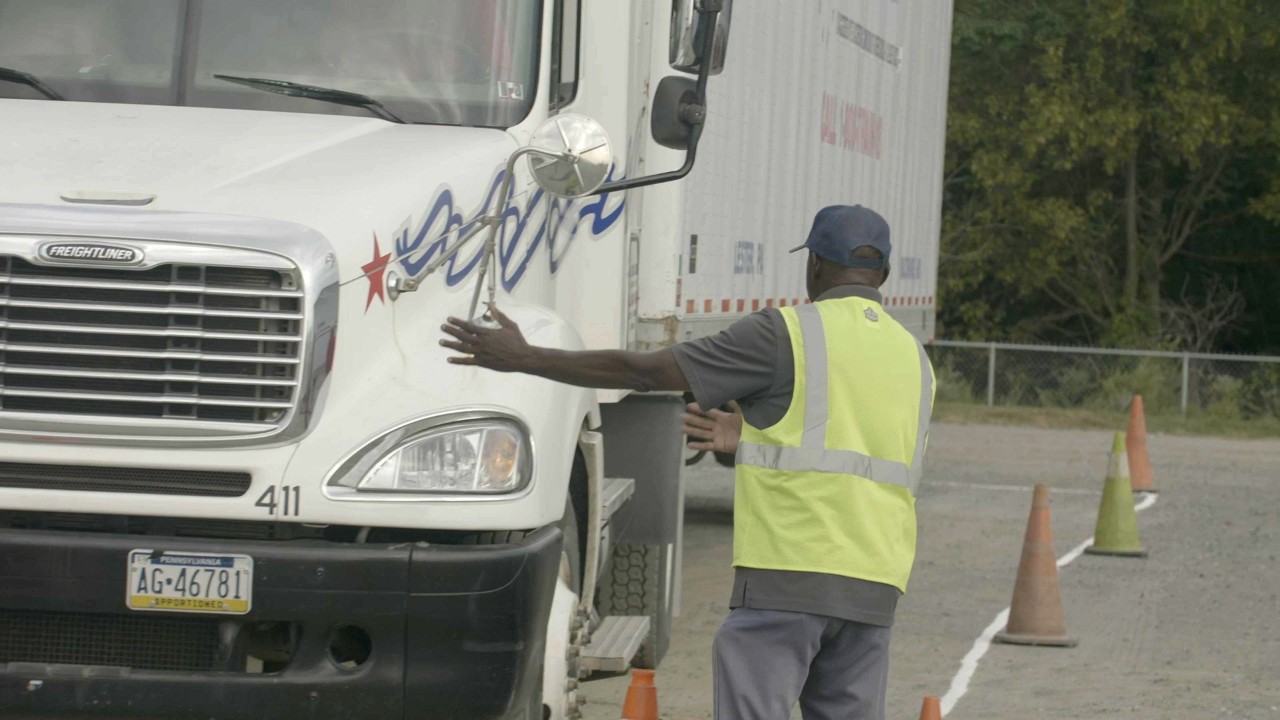Key Takeaways
CDL training at All State Career in Pennsylvania takes about six months, combining classroom learning and hands-on driving.
With 120,000 miles of highway, Pennsylvania sits within a day’s drive of 40% of the U.S. population, according to the Pennsylvania Department of Community and Economic Development.
The U.S. Bureau of Labor Statistics projects that truck driver employment will rise by 4% through 2034, creating around 89,300 new jobs.
In many ways, commercial trucking is the backbone of the U.S. economy. In 2022, trucks moved nearly 73% of the nation’s freight by weight, according to the American Trucking Associations (ATA), hauling countless goods — such as produce, petroleum, electronics, clothing, construction materials, auto parts, furniture, and pharmaceuticals — across state and international lines. The commercial trucking industry generates nearly $1 trillion in revenue each year and employs millions of Americans, including more than 2 million truck drivers, according to the U.S. Bureau of Labor Statistics (BLS).
For those looking to enter this integral profession, obtaining a commercial driver’s license (CDL) is an essential step, as is completing CDL training.
Pursuing CDL training in Pennsylvania — one of the largest distribution hubs in the nation — offers unique advantages. By understanding what is involved in obtaining a CDL in Pennsylvania, aspiring commercial drivers can streamline their licensure process and launch their career on the road.
What Are the CDL Training Requirements in Pennsylvania?
Obtaining a CDL in Pennsylvania entails several steps, including obtaining a commercial learner’s permit (CLP) and receiving training from an approved provider. Drivers need to hold a noncommercial driver’s license before they can apply for a CLP.
The basic requirements for getting a Pennsylvania CDL are:
Be at least 18 years old
Be a resident of Pennsylvania
Meet physical/medical requirements, involving a physical exam administered by the Pennsylvania Department of Transportation (PennDOT)
Beyond that, aspiring commercial drivers need to pass a written knowledge test that evaluates their understanding of state and federal driving regulations to obtain their CLP. With that CLP in hand, individuals can log supervised driving hours and train in an entry-level program.
Receiving CDL training is a crucial first step for starting a commercial driving career. For drivers in Pennsylvania, CDL training must come from a program approved by PennDOT and listed on the Federal Motor Carrier Safety Administration (FMCSA) Training Provider Registry.
Once CDL training has been completed, individuals must take a road skills test, which assesses their abilities behind the wheel in several areas, including a pretrip inspection, off-the-road maneuvers, and a parking exercise. Passing the road skills test is generally the final step in the CDL application process.
Out-of-State CDLs
Drivers cannot hold more than one CDL at a time, according to a stipulation from the Commercial Motor Vehicle Safety Act. While drivers who already hold a valid CDL in another state generally can obtain a Pennsylvania CDL without having to go through retesting, they must turn in their out-of-state CDL and provide proof of residency and Social Security card at a driver’s licence center.
Once they have submitted these documents, filled out the necessary forms, and paid the applicable fees, they will be issued a Pennsylvania CDL — often on the same day.
How Long Is a CDL Training Program?
The length of CDL training programs vary by institution and schedule (part time or full time) as well as the depth of the curriculum. Accelerated programs may last only a few weeks, while more comprehensive programs may take a few months. The latter offer a more in-depth curriculum that covers advanced driving techniques, safety protocols, and career development skills — positioning students for entry-level employment as well as long-term success.
All State Career’s Commercial Truck Driver Training programs in Pennsylvania take roughly six months to complete, and provide in-depth training that includes classroom instruction and behind-the-wheel experience. These programs are designed to equip students with the technical know-how and practical skills they need to start their career. The programs also guide students through the CDL licensing process.
Benefits of CDL Training in Pennsylvania
A CDL can serve as a springboard to a rewarding career in a dynamic, in-demand industry, in any of a variety of types of truck driving jobs. Pursuing CDL training in Pennsylvania is especially advantageous: According to Nationwide Transport Services, Pennsylvania ranks among the top five states for truck drivers, due to its stable freight market and wide range of job opportunities.
Strong Job Market
Tractor trailers transport nearly three-fourths of the nation’s goods. Therefore, it is no surprise that demand for truck drivers is on the rise, with steady employment growth expected over the next decade. The BLS projects that truck driver employment will rise by 4% from 2024 to 2034, creating around 89,300 new jobs. Nearly a quarter of a million job openings are expected to be available each year, on average, in this field during that period.
Pennsylvania is a particularly favorable job market for drivers. The state is one of the nation’s major distribution hubs, containing 120,000 miles of highway and situated within a day’s drive of roughly 40% of the U.S. population — and 60% of the Canadian population — as well as four of the 10 largest markets in the country, according to the Pennsylvania Department of Community and Economic Development.
Diverse Opportunities
It is not just the quantity of jobs that makes commercial truck driving a promising career choice but the quality of those jobs as well. Obtaining a CDL can unlock numerous types of employment opportunities, including jobs in long-haul trucking, jobs as commercial drivers in construction equipment operation, and even the chance to become an owner-operator of a hauling or trucking company.
Adding endorsements to their CDL can expand a commercial driver’s job opportunities even further, qualifying them for jobs handling specialized loads and equipment, like hazardous materials or double and triple trailers — jobs that may command higher salaries.
Flexible Schedules
Truck drivers often can tailor their routes and schedules to fit their lifestyle, allowing them to maintain a positive work-life balance. Some choose local routes so they can stay close to home, while others prefer to work part time or only on weekdays so their weekends are free to spend time with their family and friends. Drivers may also choose to work exclusively during the day or in the evening, depending on their personal preference.
In addition to its flexible schedule, commercial driving provides individuals with greater independence compared to many other professions. While their employer provides them with directions for where and when shipments must be made, drivers more or less supervise themselves when they are on the road, planning their routes, managing their time, and handling real-time decisions on their own.
Start a Rewarding Career on the Road
By completing CDL training and licensure in Pennsylvania, aspiring commercial drivers can position themselves to enter a vital, growing industry. Whether they want to drive long-haul routes or transport specialized cargo, individuals who obtain a CDL in Pennsylvania — one of the nation’s premier distribution hubs — can lay the foundation for a stable and rewarding career.
If you are looking for a career outside the traditional nine-to-five routine, explore the Commercial Truck Driver Training programs at All State Career. With campuses in Essington and Pittsburgh, All State Career offers convenient access to training while placing graduates near major metropolitan areas where skilled drivers are often in demand.
Discover how All State can help you achieve your goals.
Recommended Readings
What Is Entry-Level Commercial Driver Training?
What Does the Commercial Driver Shortage Mean for CDL Trucking Students?
Take Your Trucking Career to the Next Level: Six Endorsements to Consider


